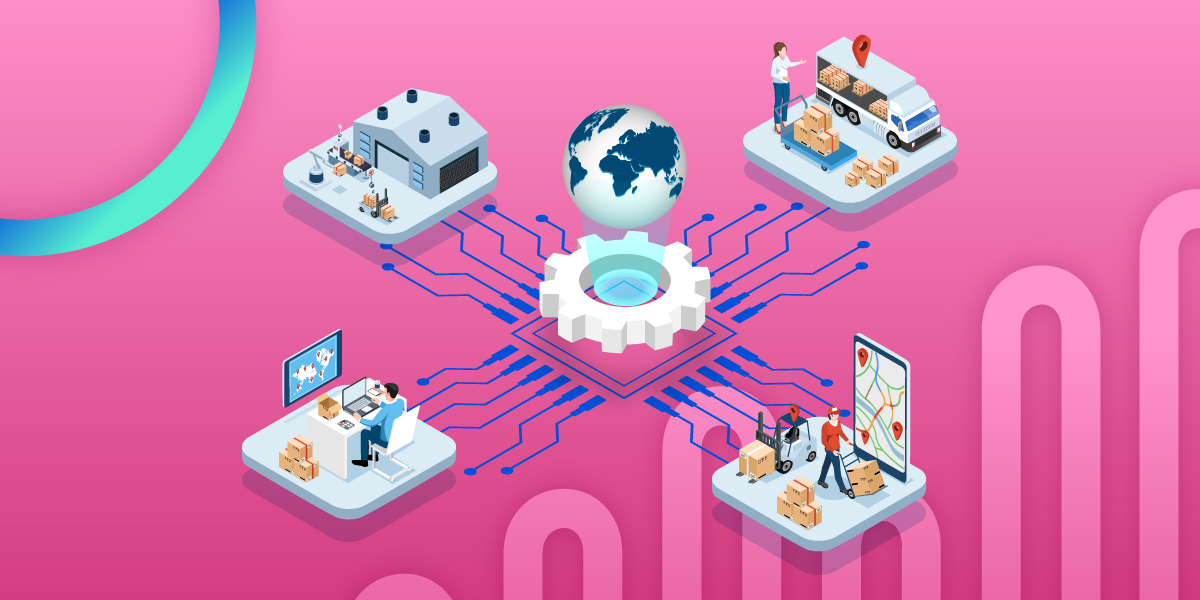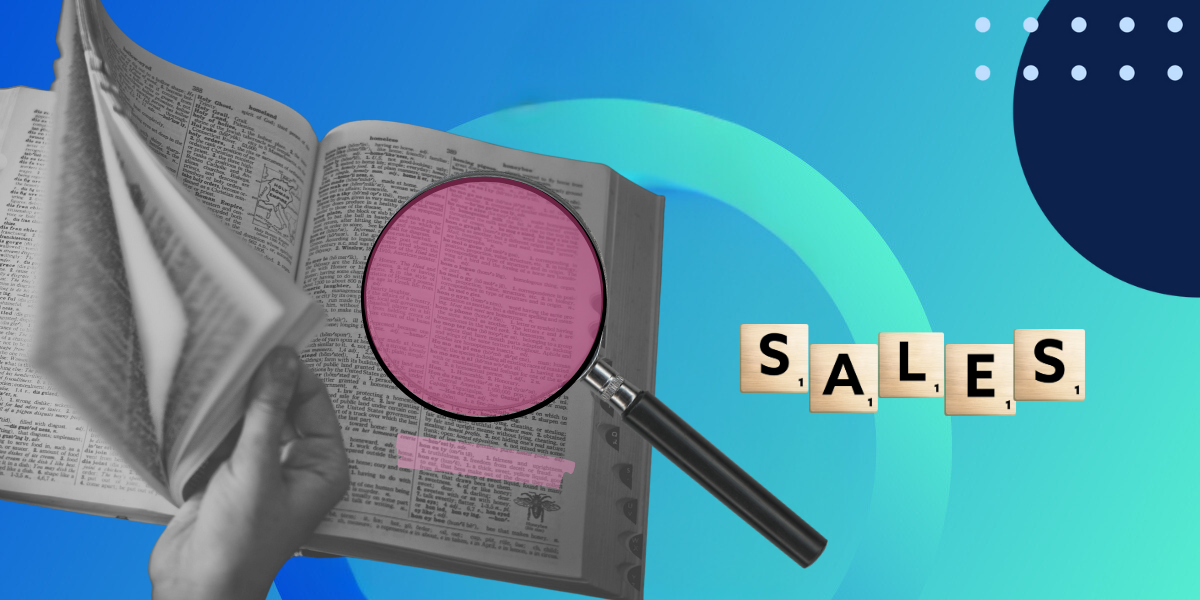Wholesale eCommerce: A Guide to Basics, Benefits & the 10 Best Platforms for B2Bs

Imagine a world where a small electrical company in New York can effortlessly source unique products from a manufacturer in Milan—all with just a few clicksThis is exactly the type of transaction made possible by wholesale ecommerce. With 49% of B2B purchases now taking place online, this seismic tech shift is changing the way businesses stock their shelves. From streamlined ordering to cost savings that would make any CFO smile, wholesale ecommerce is not just changing the game, it’s completely rewriting it.
Here, we explore the world of wholesale ecommerce, including its core benefits and the platforms that make it possible.

Understanding Wholesale Ecommerce: The What and Why
Wholesale commerce is the critical link between manufacturers and retail businesses. Wholesale companies sell goods in bulk quantities at discount prices, helping businesses stock their shelves and fuel their operations.
There are plenty of benefits to B2B brands that use the wholesale model. For starters, you don’t have to juggle multiple manufacturers at once. Instead, you can lean on one wholesaler to provide most of your products—whether that’s machinery, equipment, or office supplies. It can also be handy for accessing wholesale products you might not be able to source directly. This levels the playing field, allowing smaller brands to compete with B2B giants
When you think of wholesale ecommerce, you probably imagine mammoth sites like Alibaba, but today’s landscape (particularly in the B2B sector) is radically different. Modern B2B buyers demand sleek, user-friendly experiences, and technology has risen to meet this need. Now, even small B2B businesses and retailers can tap into wholesale’s growth potential without breaking the bank or taking on undue risk.
Cutting-edge B2B ecommerce platforms are helping brands automate the entire process, from customer signup to checkout, while offering tailored wholesale pricing.
B2B vs B2C Ecommerce: What’s The Difference?
Just a quick reminder here about the difference between B2B and B2C ecommerce. B2B refers to selling a variety of products to other business owners, while B2C brands sell products to individual consumers. This is the main difference, but B2B ecommerce tends to have larger order volumes, more complex pricing structures, and longer sales cycles.
The Benefits of Wholesale Ecommerce in the B2B World
Increased Reach
The ease and convenience of opening an app on your smartphone or a browser on your laptop to buy something has dramatically increased the popularity of wholesale ecommerce. It’s never been simpler for a wholesale business to reach new customers or for B2B companies to find wholesalers—wherever they are in the world.
With an online presence, wholesalers can reach potential customers across different regions, countries, and even continents. This global accessibility significantly increases ecommerce sales opportunities and allows businesses to tap into new markets that were previously unreachable through traditional methods.
Streamlined Ordering
Online platforms revolutionize the ordering process by providing 24/7 accessibility and automating many traditionally manual tasks.
B2B buyers can place orders at any time that suits them, not just during business hours. This convenience can lead to increased order frequency and volume. Automation reduces human error in order processing, speeds up fulfillment, and allows for real-time inventory updates. Many wholesale ecommerce platforms also offer features like easy reordering, scheduled orders, and customized catalogs, which further streamlines the purchasing process for wholesale buyers.
Improved Customer Relationships
Data-driven insights from digital channels help create personalized experiences. By analyzing purchasing patterns, browsing behavior, and other customer data, you can tailor your offerings, provide customized product recommendations, and create target marketing campaigns.
This level of personalization enhances the retail customer experience, potentially leading to increased customer satisfaction and loyalty. On top of this, online platforms often provide self-service options for account management, order tracking, and support, giving B2B customers more control and transparency in their interactions with the wholesaler.
Cost Savings
The shift to digital wholesale significantly reduces the need for physical showrooms and large sales teams.
Traditional wholesale often requires maintaining extensive product displays and employing a sizeable sales force to manage client relationships and process orders. With ecommerce, much of this can be automated or moved online. Digital catalogs replace physical ones, reducing printing and distribution costs. Virtual product demonstrations can substitute for physical showrooms. Plus, automating order processing, inventory management, and other back-office functions can reduce labor costs and improve operational efficiency.
These savings can either be passed on to customers via competitive pricing or reinvested for further business growth and improvement.
Top 10 Wholesale Ecommerce Platforms for B2B Brands
1. Experlogix (formerly Aphix)
Experlogix is a comprehensive solution for brands that have complex product configurations. If you sell multiple product parts or highly customizable goods, it can be tricky to show wholesale prices and get quotes out quickly. With Experlogix’s configurator capabilities, you can set up your website to display customizable products. This, along with the real-time enterprise resource planning (ERP) integration means every part of your wholesale ecommerce business—from order processing to inventory management—works in harmony.
This integration is particularly valuable for B2B brands dealing with complex supply chains or intricate pricing structures. You get your own branded webshop and real-time stock and pricing updates to keep customers happy.
Pros: Excellent for complex products, seamless ERP integration, and real-time updates for your webshop.
Cons: Can be complex for smaller online businesses.
Pricing: Custom quotes based on business needs.
2. Shopify Plus
Shopify Plus comes with a wealth of additional features in its app ecosystem—you can pretty much design your website to look and act however you want. The majority of the apps require little to no coding skills, which means you can customize your site easily and get your ecommerce operations set up quickly.
While it may have limited B2B-specific features out of the box, its extensive app marketplace means you can add functionality as needed. This makes it a flexible solution that can grow with your business.
Pros: User-friendly, no-code builds and an extensive app ecosystem.
Cons: Limited B2B-specific features out of the box.
Pricing: Prices start at $2,300 a month for standard setups and integrations on a three-year term.
3. Adobe Commerce
Adobe Commerce (formerly Magento) is an open-source B2B platform with a highly customizable backend so you can create a unique and tailored experience for your wholesale customers. This is particularly useful in the B2B world where specific industry needs often require dedicated, bespoke solutions. Magento has a suite of B2B features, including company accounts, quote management, and negotiated pricing. While it can be complex to set up and maintain, it offers complete control over your ecommerce operations.
Pros: Flexible, scalable, strong B2B features.
Cons: Can be complex to set up and maintain.
Pricing: Bespoke pricing on request.
4. BigCommerce
BigCommerce has built-in B2B functionality along with strong SEO features, including customer groups, price lists, and quote management. This allows B2B brands manage complex business relationships and create slick customer experiences. There are no transaction fees payable through BigCommerce, which can make it particular appealing to high-volume B2B brands.
Pros: Strong SEO features, no transaction fees, and native B2B functionality
Cons: Limited theme options.
Pricing: Most B2B brands will want to invest in BigCommerce’s Pro Plan, which starts at $399 a month.
5. WooCommerce
WooCommerce offers B2B brands a high level of customization and powerful community support. As a WordPress plugin, it’s particularly beneficial for businesses that want to integrate their B2B operations with their content marketing efforts, or for those who are already using WordPress.
The large community around WooCommerce means there’s a wealth of extensions and integrations available. This means you can create a highly customized website that suits you and your customers’ needs. It does require separate hosting and can be resource-intensive, but the payoff is that you get a high degree of control and flexibility.
Pros: Highly customizable, large community support, and lots of control and flexibility.
Cons: Requires separate hosting and can be resource intensive.
Pricing: The WooCommerce plugin is free, but there are additional costs for hosting and extensions depending on how you want to set up your website.
6. PrestaShop
PrestaShop is particularly useful for B2B brands with an international focus. Its multilingual and multistore capabilities make it easy to expand into new markets and manage multiple storefronts from a single backend. The downside is it has limited built-in features, but the fact it’s open source and you can apply add-ons means you can customize it well enough to meet your specific needs.
Pros: Multilingual, multistore capabilities.
Cons: Limited built-in features and relies on add-ons.
Pricing: Free to download, but there are costs for hosting and the add-ons.
7. OroCommerce
OroCommerce is a purpose-built B2B ecommerce platform. It features multiple price lists, workflow management, and corporate account hierarchies, all of which cater specifically to the complex needs of B2B businesses. The platform’s flexible architecture makes it easy to customize and scale as you grow.
Pros: Purpose-built B2B features and flexible architecture.
Cons: Can be complex for small businesses.
Pricing: Pricing is based on Gross Merchandise Value (GMV), which is the total value of merchandise sold through your ecommerce store over a given period of time.
8. SuiteCommerce
SuiteCommerce is an offshoot of NetSuite ERP and integrates seamlessly with the platform. The integration creates a unified place where you can manage all aspects of your B2B business, from ecommerce to financials and inventory. It can be a bit pricey if you’re not already using NetSuite—but, if you are, it offers a comprehensive single source of truth for all your business data.
Pros: Seamless integration with NetSuite ERP
Cons: Can be expensive and is best for businesses already using NetSuite.
Pricing: Custom quotes, typically in the enterprise range. In general, you can expect a SuiteCommerce standard implementation to cost a minimum of $18,000.
9. Volusion
Volusion is an all-in-one ecommerce solution with a heavy emphasis on built-in SEO tools. There are no transaction fees, which is good news from high-volume B2B brands. The downside is there are very few B2B-specific features, but there are plenty of adaptable tools you can use to piece together a relatively cost-effective solution.
Pros: Built-in SEO tools and no transaction fees.
Cons: Limited B2B-specific features.
Pricing: Business plans start at $299 a month.
10. Alibaba
Alibaba is one of the most well-known wholesale ecommerce sites. It gives B2B retailers access to a global network of suppliers and buyers. It leans more into online marketplace territory than an ecommerce platform, but it does offer unparalleled reach for brands looking to expand their supplier based and reach new customers. Alibaba’s built-in trade assurance helps mitigate the risks involved in international trade—particularly useful for B2B transactions.
Pros: Huge network of wholesale suppliers and built-in trade assurance.
Cons: More of a marketplace than a dedicated ecommerce platform. You will have to compete with other brands and this wouldn’t be branded to your business.
Pricing: Free to join, fees for additional services.
How to Choose the Right Wholesale Ecommerce Platform for Your B2B Business
Like anything, it’s important to choose the right wholesale platform for your B2B business. Here are some aspects to consider:
- Assess your specific needs. Does it offer the flexibility you need? Consider your product complexity, order volume, and desired level of customization.
- Look for scalability. Can it grow with your business?
- Explore integration capabilities. Will it work with your existing business systems? Ensure the platform you choose easily connects with your existing ERP, CRM, and inventory management systems.
- Evaluate B2B-specific features. Does the platform offer bulk ordering, tiered pricing, and customer-specific catalogs?
- Don’t overlook user experience. Is it easy to use? Pick a platform that’s intuitive for both your team and customers.
- Check security and compliance. Does the platform adhere to local and global laws? These are non-negotiable in B2B transactions.
- Compare pricing. Is it in your budget? Remember, the cheapest option isn’t always the most cost-effective in the long run.
- Seek out case studies. Look for customer reviews and case studies from businesses similar to yours.
- Research customer service. Does the platform offer the support you need?
Success Stories: Brands That Have Made the Move to Wholesale Ecommerce
How Klipspringer Increased Order Volumes by 300% in 3 Years
Klipspringer, a specialist in food safety and hygiene solutions, was under pressure to improve their digital B2B ordering process. By implementing Experlogix Digital Commerce, they could integrate in real-time with their ERP system for seamless product search, catalog management, and quote handling. Since doing this, Klipspringer has increased order values by 350% and order volumes by over 300% in just three years. The platform significantly improved order processing and customer retention, with online account customers growing 20-30% faster than other segments.
How Time Products Ltd Sped Up the Manual Order Process
Time Products Ltd, a global distributor of luxury watch brands, was struggling to digitize its sales ordering process to better serve its growing UK B2B customer base. Its manual order processing and customer account management were incredibly clunky and resource-intensive. When they started using Experlogix Digital Commerce, they could seamlessly integrate their ecommerce store with their existing SAP Business One system.
As a result, they unlocked real-time access to pricing, stock, and account information, which made the manual order process so much easier.
What to Look Out For: Future Trends in Wholesale Ecommerce
The rapid pace at which the digital commerce world is moving means wholesalers and B2B brands need to stay ahead to keep up. Over the next few years, we’ll see emerging technologies continue to transform how B2B brands do business—from AI for personalized recommendations and predictive ordering to AR and VR for virtual product demonstrations.
We’ll see an increased adoption of marketplace models in B2B, a greater emphasis on mobile-first experiences, and more self-service options for B2B buyers. To stay ahead, you’ll need to keep your finger on the pulse of new technology. This means investing in data analytics tools with powerful predictive capabilities, experimenting with new technologies, and focusing on delivering exceptional digital customer experiences.
Future-Proof Your Business With Wholesale Ecommerce
From increased global reach to streamlined operations and enhanced customer relationships, the benefits of wholesale ecommerce are clear and compelling. Success stories like Klipspringer and Time Products Ltd demonstrate the power of choosing the right digital commerce platform. Whether you’re a small business looking to compete with industry giants or an established brand aiming to optimize operations, there’s a wholesale ecommerce solution tailored to your needs.
The future of B2B trade is digital, dynamic, and data-driven. By embracing wholesale ecommerce now, you’re not just keeping up with the times—you’re proactively preparing your business for the next shift in global ecommerce.
If you’re ready to unlock the full potential of B2B commerce to accelerate your online sales cycles and transform customer engagement, schedule a strategy call with us. We’ll assess your needs and provide a tailored demo.




